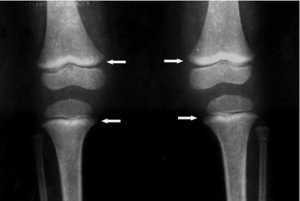Schizophrenia: Estrogen Patches May Improve Symptoms in Women
Drug Overdoses and Mental Disorders Tied to Drop in Longevity in US
Sleep History as a Predictor For Late-Life Alzheimer’s Disease Later In Life
 Sleep patterns can predict the increase of Alzheimer’s pathology proteins tau and β-amyloid later in life, according to a June 2019 study published in the Journal of Neuroscience. The findings shed hope on earlier diagnosis of Alzheimer’s and the adoption of preventive measures earlier in life. Researchers found a decrease in sleep spindle synchronization, which is linked to higher tau levels. Reduced amplitude of slow wave activity, meanwhile, is closely related to higher β-amyloid levels. In younger people, both slow oscillations and sleep spindles are synchronized. This changes as people grow older, with less coordination between the two being visible. The researchers also noted that subjects who slept less had a higher chance of having Alzheimer’s proteins when they were older. The findings show that both reduced sleep quantity and quality can serve as important warnings of the onset of Alzheimer’s.
(more…)
Sleep patterns can predict the increase of Alzheimer’s pathology proteins tau and β-amyloid later in life, according to a June 2019 study published in the Journal of Neuroscience. The findings shed hope on earlier diagnosis of Alzheimer’s and the adoption of preventive measures earlier in life. Researchers found a decrease in sleep spindle synchronization, which is linked to higher tau levels. Reduced amplitude of slow wave activity, meanwhile, is closely related to higher β-amyloid levels. In younger people, both slow oscillations and sleep spindles are synchronized. This changes as people grow older, with less coordination between the two being visible. The researchers also noted that subjects who slept less had a higher chance of having Alzheimer’s proteins when they were older. The findings show that both reduced sleep quantity and quality can serve as important warnings of the onset of Alzheimer’s.
(more…)Is It Always Your Fault? Taking Too Much Responsibility Can Lead to OCD
NYU Researchers Develop Siri-Like Application to Identify PTSD by Speech Analysis
Despair Rising in Young Middle Aged Adults, Regardless of Ethnicity or Education
Parkinson’s Disease: Mindfulness Yoga and Stretching To Reduce Anxiety and Depression
Same Autistic Trait Can Be Helpful or Hindering, Depending on Context
Medicaid Work Requirements Disproportionately Affect Those with Mental Health or Substance Use Disorders
Urban Youth Exposed to Air Pollution Have Greater Risk of Psychotic Experiences
 Joanne B. Newbury, PhD
ESRC Postdoctoral Fellow
King’s College London
Social, Genetic & Developmental Psychiatry Centre
Institute of Psychiatry, Psychology & Neuroscience
London, United Kingdom
MedicalResearch.com: What is the background for this study?
Response: Urban living is one of the most well-established risk factors for adult psychotic disorders such as schizophrenia. However, less is known about the role of the urban environment in subclinical psychotic experiences in childhood and adolescence, such as hearing voices and extreme paranoia. These early psychotic experiences are a developmental risk factor for adult psychotic disorders and a range of other serious mental health problems such as depression and anxiety.
It is therefore important that we understand what factors might contribute to the development of early psychotic experiences so that we might be able to intervene and prevent their onset and progression.
In a cohort of over 2000 UK-born children (The Environmental Risk Longitudinal Twin Study), we have previously shown that subclinical psychotic experiences are also around twice as common among children and teenagers raised in urban versus rural settings. We have also shown that this appears to be partly explained by social features in urban neighbourhoods such as higher crime levels and lower levels of social cohesion.
However, no studies have examined the potential link between air pollution and psychotic experiences. This is despite air pollution being a major health problem worldwide (particularly in cities), and despite emerging evidence linking air pollution to the brain. (more…)
Joanne B. Newbury, PhD
ESRC Postdoctoral Fellow
King’s College London
Social, Genetic & Developmental Psychiatry Centre
Institute of Psychiatry, Psychology & Neuroscience
London, United Kingdom
MedicalResearch.com: What is the background for this study?
Response: Urban living is one of the most well-established risk factors for adult psychotic disorders such as schizophrenia. However, less is known about the role of the urban environment in subclinical psychotic experiences in childhood and adolescence, such as hearing voices and extreme paranoia. These early psychotic experiences are a developmental risk factor for adult psychotic disorders and a range of other serious mental health problems such as depression and anxiety.
It is therefore important that we understand what factors might contribute to the development of early psychotic experiences so that we might be able to intervene and prevent their onset and progression.
In a cohort of over 2000 UK-born children (The Environmental Risk Longitudinal Twin Study), we have previously shown that subclinical psychotic experiences are also around twice as common among children and teenagers raised in urban versus rural settings. We have also shown that this appears to be partly explained by social features in urban neighbourhoods such as higher crime levels and lower levels of social cohesion.
However, no studies have examined the potential link between air pollution and psychotic experiences. This is despite air pollution being a major health problem worldwide (particularly in cities), and despite emerging evidence linking air pollution to the brain. (more…)How Do Men Express Grief After Pregnancy Loss?
Obesity and Depression Can Be Treated With Collaborative Care
Collaborative Chronic Care Model Improved Patient Outcomes in Complex Mental Health Patients
Delirium: Treatment Options and Prevention Measures
More Hospitals Dropped Addiction Services Than Added Them
Not All Polypharmacy for Schizophrenia is Bad
Polygenic Risk Scores Linked to Intelligence, ADHD and Brain Findings
Psychiatric Problems Related to Lead Exposure Detected As Early As Age 11
- These individuals tended to report more internalizing (e.g., depression, anxiety) and thought disorder (e.g., OCD, schizophrenia, mania) symptoms.
- Compared to other findings from this sample, the associations reported in this article are similar to those reported for lead and IQ, and are stronger than those reported for lead and criminal offending.
- Informants who knew Study members well reported higher levels of difficult adult personality traits among Study members with greater lead exposure in childhood.
- Specifically, Study members with greater blood lead levels at age 11 were rated as more neurotic, less agreeable, and less conscientious by 38 years of age.
- These personality traits have been previously linked to a number of poor life outcomes, including greater psychopathology, worse physical health, less job satisfaction, and troubled interpersonal relationships
- Psychiatric problems related to lead exposure could be detected as early as 11 years of age. In the 1980’s, parents and teachers of children with higher blood-lead levels had described them as displaying more antisocial behavior, hyperactivity, and negative emotions (e.g., sadness, anxiety).
Mental Illness Risk Increased in Young Onset Diabetes
Not All Electronic Health Record Warnings Are Accurate
- Electronic prescribing of medication by clinicians is widespread; it is required in many institutions and in some states. Electronic prescribing systems commonly use computerized decision support algorithms that give prescribers automated warnings or alerts at the time of prescribing if the system identifies a potential prescribing error.
- Some prior studies suggest that electronic prescribing warnings/alerts may reduce prescribing errors and thus can be clinically useful. However, other prior studies caution that these alerts may have substantial limitations.
- Despite the importance of this topic, relatively few studies have examined the accuracy of automated prescribing warnings in electronic prescribing systems; to our knowledge, no prior study has focused primarily on prescribing of medications for psychiatric conditions.
- This report presents results from a survey of members of the American Society of Clinical Psychopharmacology (ASCP), a specialty society that advances the science and practice of clinical psychopharmacology, regarding automated warnings generated by electronic prescribing systems.

MedicalResearch.comInterview with:
Professor John McGrath
Niels Bohr Professor
National Centre for Register-based Research
Aarhus University
Queensland Brain Institute
University of Queensland
Brisbane AustraliaQueensland Centre for Mental Health Research
The Park Centre for Mental Health Australia
MedicalResearch.com: What is the background for this study?
What are the main findings?
Response: We know that people born in winter and spring have an increased risk of later developing schizophrenia. But, we were not sure why. We know that vitaminD, the sunshine hormone, is more likely to be low in winter and spring, so wedeveloped a way to test for vitamin D in stored neonatal blood sample.
(more…)Exposure to Police Violence May Be Associated With Mental Health Disparities
 Dr. Jordan E. DeVylder, PhD
Graduate School of Social Service
Fordham University, New York, New York
MedicalResearch.com: What is the background for this study? What are the main findings?
Response: This study is intended to address the lack of empirical research on police violence from a public health perspective.
The main findings are that police violence is relatively widespread in Baltimore and New York City, is disproportionately directed toward people of color and sexual or gender minorities, and is associated with psychological distress, suicidal behavior, and psychosis-like symptoms.
(more…)
Dr. Jordan E. DeVylder, PhD
Graduate School of Social Service
Fordham University, New York, New York
MedicalResearch.com: What is the background for this study? What are the main findings?
Response: This study is intended to address the lack of empirical research on police violence from a public health perspective.
The main findings are that police violence is relatively widespread in Baltimore and New York City, is disproportionately directed toward people of color and sexual or gender minorities, and is associated with psychological distress, suicidal behavior, and psychosis-like symptoms.
(more…)Serious Mental Illness Raises Risk of 30 Day Readmission
Do Antipsychotics Shorten Duration of Delirium in ICU Patients?
ADHD May Offer an Edge To Creative Endeavors
Folate Metabolites Linked To Increased Risk of Autism Spectrum Disorder
MedicalResearch.com Interview with: [caption id="attachment_44726" align="alignleft" width="200"] Prof., Hahn[/caption] Juergen Hahn PhD, Professor and Department Head Department of Biomedical Engineerin Department of Chemical &...
Addiction Withdrawal Treatment Using Transcranial Magnetic Stimulation
Does Methylphenidate (Ritalin) Cause Psychotic Symptoms in ADHD ?
Methylphenidate treatment may cause psychotic symptoms in 1.1% to 2.5% of children and adolescents with ADHD. The data are too...




























